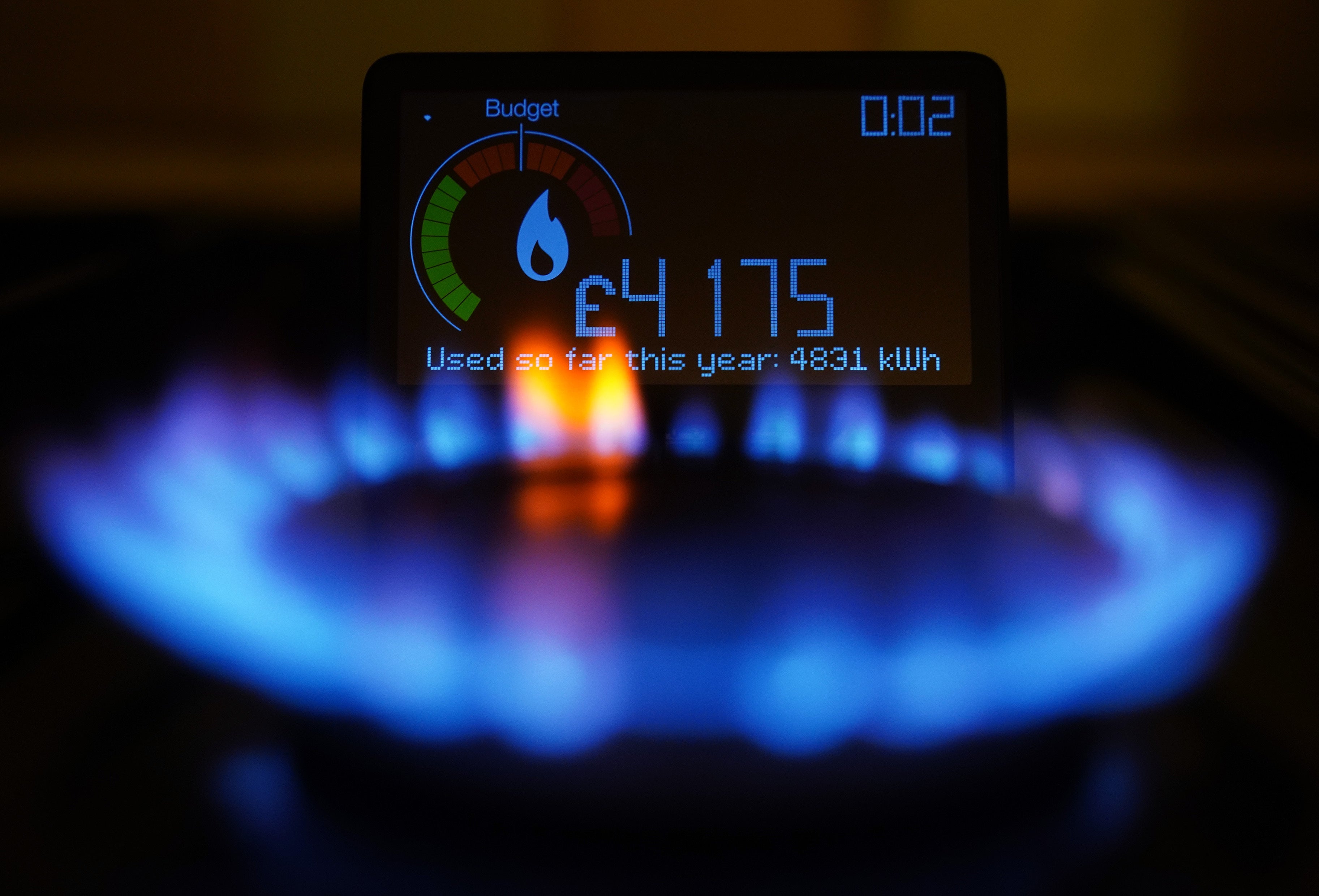Cap on energy bills set to be extended past 2023
The Government has also promised new measures to help the industry invest in heat pumps – a cleaner form of keeping homes warm

The Government plans to continue capping household energy bills even after 2023 when current legislation is set to run out.
It said that the cap is the best way of protecting millions of households across the country, despite recent record rises in energy bills that happened when the price cap was in place.
In the Queen’s Speech, the Government also promised that a new Energy Bill will aim to support a low-carbon energy system and reduce dependence on gas over the long term, provide measures to help the industry step up investment in electric heat pumps – which are a clean alternative to gas boilers.
It will also appoint Ofgem as the new regulator for heat networks to ensure consumers get a fair price and reliable supplies of heat for those heating systems, which experts say will also have a role in cutting emissions from heating, and enable the first large-scale hydrogen heating trial to help inform a decision on the role of the gas in cutting emissions from heating in 2026.
The Government also said it would give business rates relief for low-carbon heat networks and some exemptions for machinery used to generate renewable energy.
“My Ministers will bring forward an Energy Bill to deliver the transition to cheaper, cleaner, and more secure energy,” said the Prince of Wales, standing in for the Queen on Tuesday.
- January 1 2019 - £1,137
- April 1 2019 - £1,254 (+£117)
- October 1 2019 - £1,179 (-£75)
- April 1 2020 - £1,126 (-£17, included new calculation of average use)
- October 1 2020 - £1,042 (-£84)
- April 1 2021 - £1,138 (+£96)
- October 1 2021 - £1,277 (+£139)
- April 1 2022 - £1,971 (+£694)
“This will build on the success of the Cop26 Summit in Glasgow last year.”
The price cap on energy bills was introduced in 2019 with the ability to extend annually until 2023, but next year the rules are set to expire.
Critics of the cap say it merely delays the pain felt by households when energy bills are going up. Some have called on more targeted support for vulnerable households instead
Last year it meant that even though energy prices rose significantly between price caps, it took until April for bills to go up for customers.
But at that point they rose by a record £694 to £1,971 for the average household. Bills are expected to rise further still in October when the price cap is changed again.
The latest predictions from Cornwall Insight, a consultancy, is that the cap could rise to £2,595 in October, and stay at around £2,300 until April 2024. Although these predictions are based on early data.
“The energy price cap is the best safety net for millions, preventing suppliers from overcharging consumers,” the Government said on Tuesday in a document released alongside the Queen’s Speech.
It added: “By extending the energy price cap beyond 2023, the Government will be protecting 22 million households who are on default tariffs.”
We look forward to working with government and wider industry and NGO partners to make the proposals laid out today a reality
The Government has been under pressure to help households reduce their energy bills as costs soar by boosting insulation to stop heat being wasted and make the switch to heat pumps more affordable.
Cutting emissions from homes and other buildings – much of which come from heating – is also needed to ensure the UK meets its targets to tackle climate change.
Swapping gas boilers for hydrogen powered boilers is more controversial, as it will require the manufacture of hydrogen either from natural gas – which would need technology to capture and store the carbon emissions generated underground to make it low-carbon – or producing it from water using renewable power, and is currently an expensive option.
The Energy Bill also aims to create “state-of-the -art” business models for carbon capture usage and storage, low carbon hydrogen and capturing carbon from industrial processes.
Jonathan Brearley, the chief executive of energy regulator Ofgem, said: “Ofgem is ready to play our role in this, helping to create and invest in the infrastructure for net zero to thrive, building robust local energy systems and spearheading innovative technologies such as carbon capture and storage.
“We look forward to working with government and wider industry and NGO partners to make the proposals laid out today a reality.”
Climate think tank E3G welcomed the plans for a heat pump market standard and trading scheme, which it said would oblige gas boiler companies to sell more heat pumps, or buy credits for sales made by other firms, boosting the roll-out of the technology which would reduce costs for consumers over time.
Senior policy adviser Juliet Phillips said: “The proposed low-carbon mandate on heating appliance manufacturers could spur innovation and investment in domestic heat pump manufacturing – lowering the cost of technologies for households and supporting green jobs across the country.”
But she criticised the lack of reference to energy efficiency in the energy security plans as “baffling at best and highly concerning at worst”.
“The UK has the coldest and leakiest housing in western Europe and a nationwide scheme to renovate and improve our homes would significantly reduce energy bills, as well as boosting green jobs and supporting warmer and healthier houses.”
Greenpeace UK’s head of politics Rebecca Newsom said there was no serious plan for fixing heat-leaking homes or getting the country off fossil fuel gas.
“The Government should listen to growing calls for a windfall tax on oil firms’ record profits and use the money to help vulnerable households and improve our draughty homes,” she said.
Bookmark popover
Removed from bookmarks